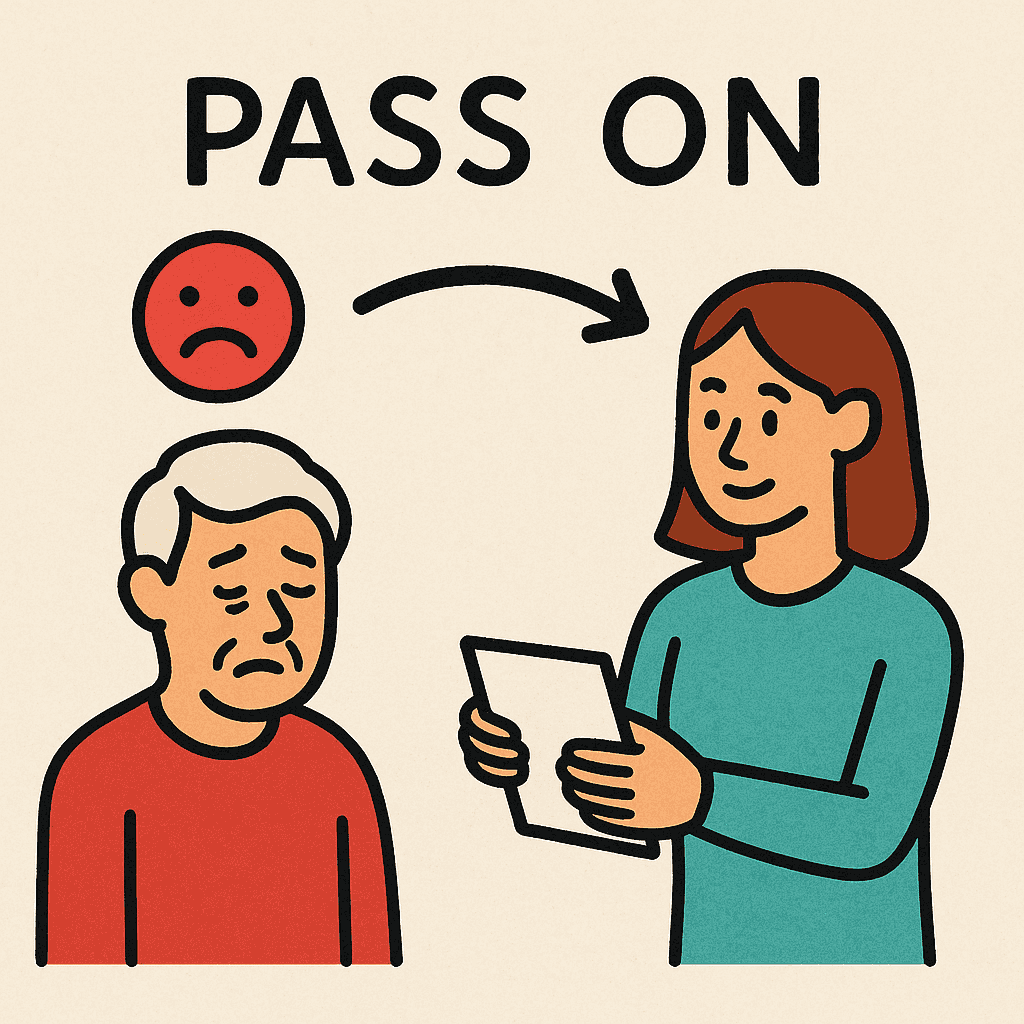Meaning
The phrasal verb “pass on” has several meanings depending on the context:
- To die (a polite or indirect way of saying someone has died).
- To give something to someone else (e.g., information, messages, or physical objects).
- To decline or refuse something (e.g., an offer or opportunity).
Grammar and Usage
- pass on + noun → to transfer or give something.
- pass on + information/message → to communicate further.
- pass on + offer/opportunity → to refuse or skip.
- pass on (no object) → to die (intransitive use).
Part of speech: phrasal verb (transitive and intransitive depending on use).
Common Phrases
- pass on information
- pass on a message
- pass on an opportunity
- pass on to the next generation
- pass on (meaning die)
Collocations
- verb + pass on: can, will, might pass on
- pass on + noun: knowledge, traditions, message, opportunity
- pass on + to: pass on to children, pass on to colleagues
Examples
- Sadly, his grandfather passed on last year.
- Could you pass on this message to your manager?
- I think I’ll pass on dessert tonight; I’m full.
- Parents often pass on their values to their children.
- She decided to pass on the job offer because it didn’t fit her goals.
- The teacher passed on some useful tips for studying.
- Traditions are passed on from generation to generation.
- He politely passed on the invitation to the party.
Synonyms or Related
- For “die”: pass away, depart
- For “give/transfer”: hand over, transmit, deliver
- For “refuse”: decline, turn down
Antonym
- For “die”: survive, live
- For “refuse”: accept, take up
- For “give/transfer”: keep, withhold
